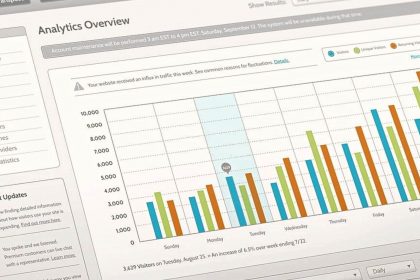Choosing a dedicated server means hosting your website, application, or workload on a physical machine that’s exclusively yours. This gives you impressive power — but also significant responsibility. If you’re new to dedicated hosting, your choice of dedicated server hosting provider can greatly influence your experience. Here’s what to consider when making that selection.
1. Reliability and uptime
Reliability ensures your server stays online and responsive. Uptime measures this, representing the percentage of time your server operates without interruption. Since downtime costs you traffic, sales, and trust, high uptime is essential.
What to check:
- A Service Level Agreement (SLA) guaranteeing at least 99.9% uptime (preferably 99.99%).
- Real-time status pages or historical uptime reports.
- Redundant power, networking, and failover systems.
If this information isn’t public, consider it a red flag.
2. Performance and hardware
A good dedicated server hosting provider will use powerful hardware because it directly impacts your site’s speed, processing power, and ability to handle traffic. Factors like the CPU, RAM, storage, and network are crucial, as weak hardware leads to poor performance.
What to check:
- Detailed specs like “Intel Xeon E-2388G” instead of vague terms like “8-core CPU.”
- NVMe SSDs over slower SATA or HDD storage.
- DDR4 or DDR5 RAM, ECC support, and RAID configurations.
- Network port speed (1Gbps or higher) and whether bandwidth is metered or unmetered.
Reputable providers will share these specs; if they don’t, ask directly.

3. Security and compliance
Security protects your server and data from threats, while compliance ensures you meet regulations like GDPR, HIPAA, or PCI-DSS. If you handle customer data, compliance is often a legal requirement.
What to check:
- If DDoS protection, firewalls, and malware scanning are included or extra.
- Certifications like SOC 2, HIPAA, or PCI-DSS on the provider’s website.
- Backup frequency, off-site storage, and disaster recovery options.
- Their data protection policy or other compliance documentation.
Don’t assume your server is secure — ask for specifics.
4. Support and managed services
Support helps when things go wrong, while managed services can handle maintenance, updates, and security for you. If you’re not a sysadmin, you’ll need reliable support to resolve issues quickly.
What to check:
- 24/7/365 support via chat, tickets, or phone.
- Whether their support team is in-house or outsourced.
- If they offer fully managed, semi-managed, or unmanaged plans.
- What’s included: Do they monitor uptime, patch your OS, or help with setup?
- Reviews about their support quality and responsiveness.
Ask for a breakdown of what each support tier covers.
5. Scalability and flexibility
Scalability lets you upgrade resources as you grow, while flexibility allows for customization. Your current setup might work now, but you need a plan for when traffic increases or your needs change.
What to check:
- If you can upgrade resources (RAM, CPU) without downtime.
- Whether you can customize your server or are limited to pre-set configurations.
- Hybrid or clustered solutions for greater scalability.
- If they offer month-to-month billing or require long-term contracts.
- How quickly they can deploy additional servers.

6. Cost and pricing
Pricing includes the base cost, add-ons, and potential overage fees. Dedicated hosting is an investment, so transparent pricing is key to avoiding hidden costs.
What to check:
- A clear, itemized pricing structure for RAM, storage, OS, and support.
- If bandwidth is metered or unmetered.
- Setup fees, software licensing costs, and add-ons like backups or security.
- Renewal terms, as introductory pricing may increase.
- If they offer a money-back guarantee or trial period.
Avoid choosing the lowest price if it means sacrificing reliability or support.
7. Location and data sovereignty
Server location affects both performance and legal compliance. Hosting near your audience improves speed, while certain regions may be required for data regulations.
What to check:
- Data center locations and if you can choose your server’s location.
- Compliance with local data laws like GDPR or CCPA.
- Geo-redundant hosting or disaster recovery in other regions.
- Partnerships with CDNs (like Cloudflare) for better global performance.
Hosting in the wrong location can increase latency or violate privacy laws, so choose carefully.
By evaluating these factors, you can find a provider that meets your needs and ensures your server is reliable, performant, and secure.





